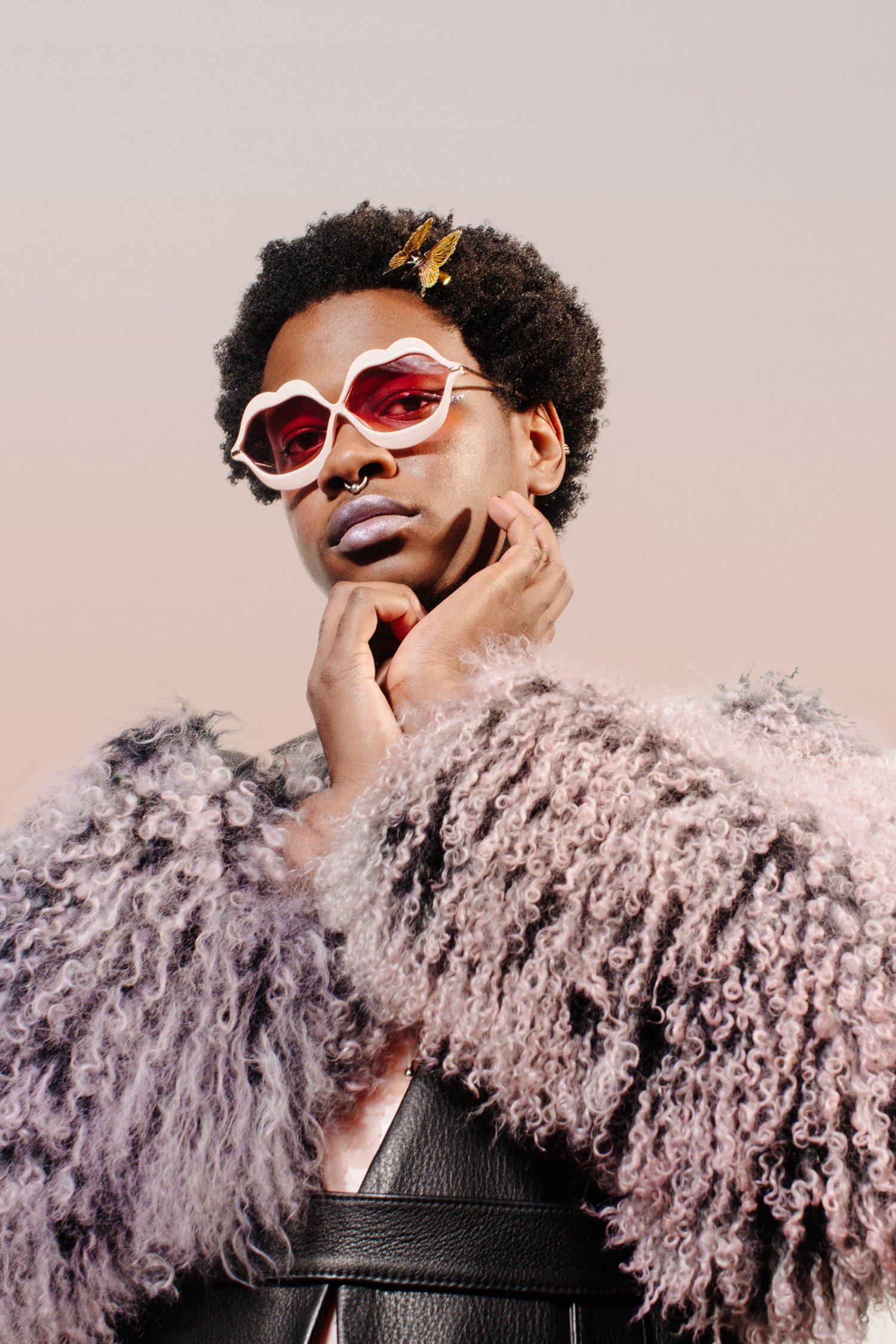Shamir: Queer Pop and Living Outside the Gender Binary
Electric pop singer-songwriter Shamir is totally over your straight, cis-normative bullshit.
And he’s not alone. At only 23, Shamir has had quite the spanning career, despite his claims otherwise. In 2015 he made Ratchet on XL Recordings, a debut released among the likes of Adele and MIA, though disputes with his producer and collaborator led to not one but two scrapped projects before he and the label parted ways. In the wreckage, Shamir self-released Hope in early 2017 on SoundCloud, a record he self-produced in a weekend out of frustration. With that, a new, more pure Shamir emerged and that same year his most recent follow-up Revelations cemented his vision; a vision that’s purely and unadulteratedly his. And in an industry that is almost entirely driven by romantic and sexual urges, desires, and motivations, where do queer, pansexual, non-binary people like Shamir fit in, if at all?
“I told myself a long time ago that I wasn’t going to be fetishized or be someone’s experiment.”
WUSSY got a chance to speak with Shamir via Skype from his Philadelphia home one afternoon.
“Where you’re non-binary, you’re somewhere in the in-between, you know? A lot of times it’s really hard to find a place within sexuality because you might lack, for other people a ‘more firm sexuality’ whether it be gay, straight, or even bisexual.”
He expounds how the term “Bisexual” could potentially be triggering for some non-binary people, because it leads to a dreadful and demoralizing guessing game. Romance and attraction is already hindered while people try to navigate their need to ‘figure out’ Shamir and other non-binary people.
He simply puts, “Presenting in a non-confirmative way makes sex and dating a little trickier.”
In his music, especially initially, his youth was played up more than his sexuality. On his biggest hits like “On The Regular”, from his Ratchet days, it’s clear that despite his queerness, the focus at the time was on Pop and fun, and less so about the introspection queer people are confronted with all the time. Safe spaces and people whom they can be their true selves with are few and far between, often relegating to other people’s homes for weekend retreats, instead of a conventional late-night queer bar scene.
“Straight Boy”, the closing track from his album Revelations is a cathartic release for Shamir. It’s about the frustration that, despite whatever good intentions the ‘straight boy’ may have in courting or lusting after them, a non-binary person, they simply don’t understand and can’t come to terms with Shamir’s gender identity.
“A lot of my songs talk about the struggles of trying to find connections with people who generally exist on the binary,” he explains, saying that it comes from a fear of fetishization, and the potential violence that comes with that. “I told myself a long time ago that I wasn’t going to be fetishized or be someone’s experiment.”
“Even if I wanted to be more sexual with my presentation and in my art, it would have to be a very specific way. I feel like people still see me as a 19-year-old kid.”
PHOTO: RYAN DUFFIN
Dating’s not off the table for Shamir, no matter how hard it might be. His ideal first date?
“Something more casual. Something basic. Dinner and a show. Mostly music.” And when he’s not crafting his own sounds, he’s finding inspiration in HBO’s Veep and Shakira’s 90s discography.
Nevertheless, he’s optimistic for the future of gender non-binary and queer people.
“It’s a little disappointing, but we’re getting there. Studies have shown people our age are identifying more and more as queer and aren’t in a box, but we still have ways to go.”
---
This story originally ran as the cover story of WUSSY Volume 3: The Sex Issue. Since then, Shamir released a surprise album "Resolution" on Bandcamp.
The Sex Issue is currently Out of Stock, but you can preorder Volume 4 HERE.
Photos: Ryan Duffin
Words: Tyler Scruggs
Stylist: Joanne Henriquez
Leather: Mother of Exile
Archive
- February 2025
- November 2024
- October 2024
- September 2024
- August 2024
- July 2024
- June 2024
- May 2024
- April 2024
- October 2023
- July 2023
- June 2023
- May 2023
- April 2023
- March 2023
- February 2023
- June 2022
- April 2022
- March 2022
- January 2022
- December 2021
- October 2021
- September 2021
- August 2021
- July 2021
- June 2021
- May 2021
- April 2021
- March 2021
- February 2021
- January 2021
- December 2020
- October 2020
- September 2020
- August 2020
- July 2020
- June 2020
- May 2020
- April 2020
- March 2020
- February 2020
- January 2020
- December 2019
- November 2019
- October 2019
- September 2019
- August 2019
- July 2019
- June 2019
- May 2019
- April 2019
- March 2019
- February 2019
- January 2019
- December 2018
- November 2018
- October 2018
- September 2018
- August 2018
- July 2018
- June 2018
- May 2018
- April 2018
- March 2018
- February 2018
- January 2018
- December 2017
- November 2017
- October 2017
- September 2017
- August 2017
- July 2017
- June 2017
- May 2017
- April 2017
- March 2017
- February 2017
- January 2017
- December 2015
- November 2015
- October 2015
- September 2015
- August 2015
- July 2015
- June 2015
- May 2015
- April 2015











